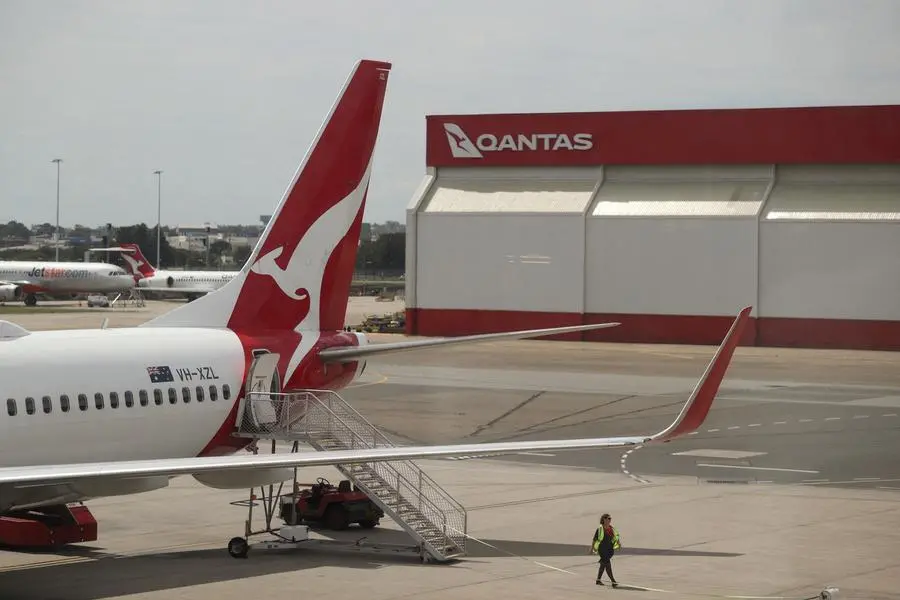PHOTO
Australian flag carrier Qantas Airways on Friday raised its first-half domestic revenue expectations and said it was on track to restart dividend payments from the second half of the financial year, sending shares to a record high.
Under the leadership of a new CEO and chair, the iconic Australian brand has been working to rebuild a reputation that was battered over the last 18 months amid legal, regulatory and customer issues.
The airline said domestic demand for travel was stronger than expected and also lowered first-half jet fuel costs after a drop in global prices to about A$2.55 billion ($1.69 billion), from an earlier estimate of A$2.7 billion.
The firm's shares gained as much as 1.6% on Friday to A$8.04, hitting a record high for the second time in the week.
Qantas now expects revenue per available seat kilometre for its domestic businesses to increase by 3% to 5% for the first half ended Dec. 31 compared to a year ago, up from the 2% to 4% range it provided in August.
Its international revenue per available seat kilometre was still expected to fall by 7% to 10%, as rivals restore capacity and airfares retreat from post-pandemic highs.
Qantas CEO Vanessa Hudson said in a speech at the airline's annual general meeting on Friday that the group was performing in line with expectations in the first half.
"Jetstar saw stronger than anticipated demand, while Qantas Domestic load factors and demand for corporate travel continues to improve year on year," she said.
Hudson and new Chair John Mullen said Qantas was not opposed to Qatar Airways' proposal to take a 25% stake in its chief domestic rival Virgin Australia, saying its investment plan made it well-placed to compete.
Qantas had previously lobbied the federal government, which still needs to sign off the Qatari investment, against the Gulf carrier's ultimately unsuccessful bid to offer more flights to Australia.
PAST MISTAKES
Hudson took over late last year from long-serving CEO Alan Joyce, who an external review in August found responsible for measures that alienated travellers, employees and shareholders, leading to a cut in his exit bonus.
Mullen told the annual meeting that the airline was committed to learning from the mistakes of the past.
The gathering was less dramatic than a year ago, when investors took then-Chair Richard Goyder to task over a series of crises and shareholders voted overwhelmingly to reject the airline's executive pay plans. All resolutions passed this year.
Mullen told shareholders Qantas remained on track to reinstate fully franked dividends from the second half of the current financial year. It last paid a dividend in 2019, before international travel ground to a halt during the pandemic.
He said the airline had not previously had enough franking credits, a mechanism that allows Australian investors a tax credit for tax already paid by the company, to pay dividends.
"With the progress we have already made on restoring our reputation, supported by a strong balance sheet, the outlook for Qantas and Jetstar is really positive," Mullen said.
The firm said its A$400 million share buyback was currently 45% complete at an average price of A$7.23. The airline anticipates its finalisation by the end of the year. ($1 = 1.5060 Australian dollars)
(Reporting by Lisa Barrington in Seoul and Rishav Chatterjee in Bengaluru; Editing by Jamie Freed)




















